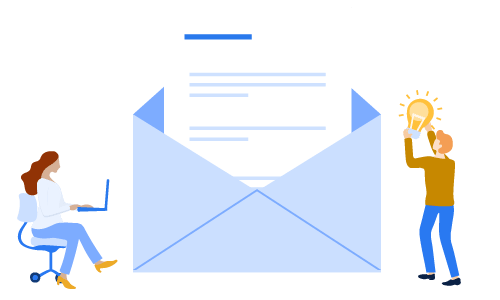Is Salesforce the Best CRM Choice for Your Business? [Webinar Recap]


Daniel Wineland
Salesforce has been a powerhouse in the CRM software industry for decades. However, some companies are deterred by the complexity and cost of the platform.
But with years of experience as CRM experts, we can confidently say Salesforce is worth the investment for businesses of all types and sizes. Not only can Salesforce unify your data as a single source of truth, but it can also flexibly adapt to your business needs.
In this post, we’ll discuss Salesforce’s main benefits, competitive differentiation, and how to get started with Salesforce.

WEBINAR REPLAY:
Is Salesforce the Best CRM Choice for Your Business?
Take a deep dive into Salesforce’s history, top features, and biggest benefits that earn it the top spot in the CRM software world.
Why is Salesforce so popular?
In short, Salesforce is a powerful tool with unmatched customization options that scales with you as your business grows. In fact, 70% of users report a faster ROI as a result of implementing Salesforce.
Salesforce is not just another CRM; it includes a suite of tools that help with every aspect of your business. With Salesforce Customer 360, you can connect all your data across departments. In addition to Sales and Service Cloud CRM solutions, Salesforce also offers apps tailored to different types of organizations and teams. For example, you can create marketing campaigns using Marketing Cloud or track nonprofit impact using Nonprofit Cloud.
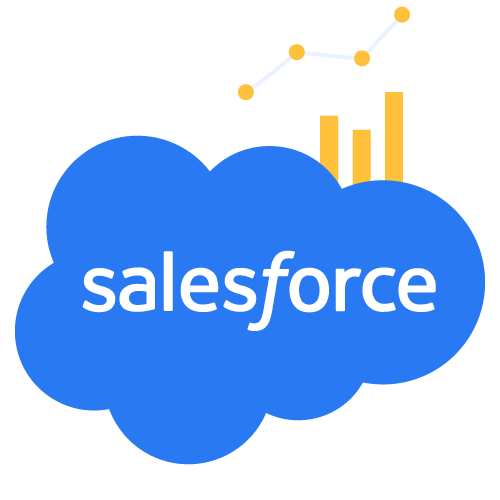
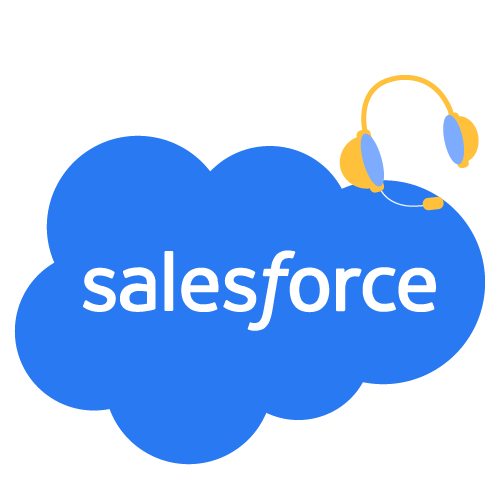
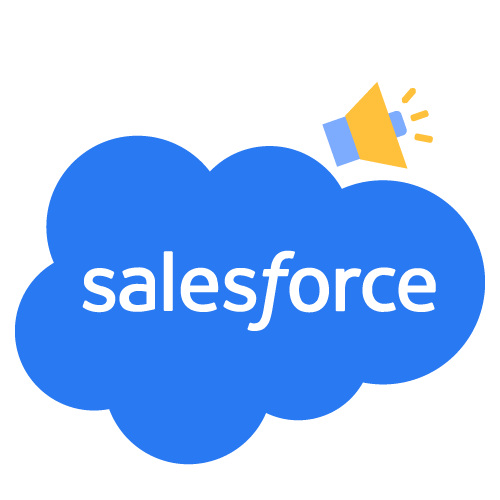
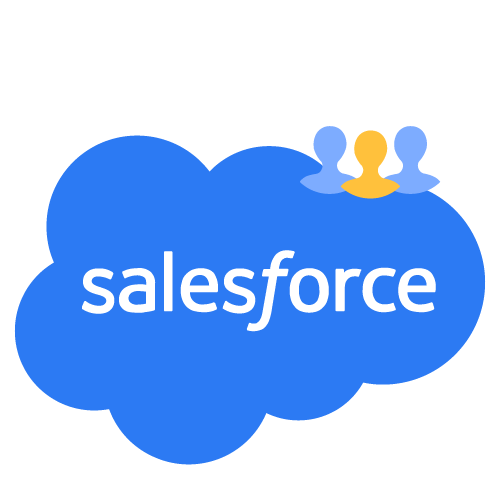
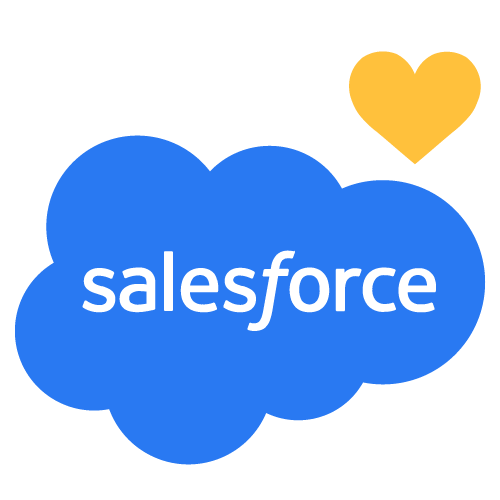
Here are 7 more key benefits that help Salesforce stand out from the market:
- Database management flexibility
- Powerful integrations using AppExchange
- Better UX compared to other robust CRMs
- 3 major update releases per year
- Controlled testing environments for new builds
- Vast resource library, documentation, and Trailhead training
- Dedicated user community and help forums
Database management flexibility
Salesforce acts as a single source of truth, giving you complete freedom for managing your organization’s data.
You can utilize both custom and standard objects and fields to organize records in your database based on your business processes. That way, you can clearly define and outline relationships between things like customer accounts, individual contacts, and sales opportunities. You can also collect relevant and niche data points about your customers to better make data-driven decisions.
You‘re also able to define individual users’ security settings. Depending on the user’s security levels, they can then access relevant data based on their role. This allows you to protect data integrity without compromising on transparency.
Powerful integrations using AppExchange
Salesforce offers many ways to integrate third-party tools for additional functionality. Their AppExchange marketplace lets you install free and paid apps such as DocuSign, LinkedIn Sales Navigator, and Quickbooks.
Many vendors and Salesforce developers provide their own tools through AppExchange to help elevate and customize your CRM. For example, you can download templates to quickly create dashboards without building reports from scratch.
Additionally, many other integrations can be connected natively or through API. In fact, most providers choose to integrate their tools with Salesforce before other CRMs.
Better UX compared to other robust CRMs
Salesforce may be a feature-rich platform, but it’s still user-friendly compared to other robust CRMs on the market. Its intuitive interface makes it easier for the everyday user, such as sales and customer service reps, to pick it up.
You also don’t need to be a developer to customize the platform for your business. However, you do have the ability to tailor your platform even further with custom development. That way, your platform can look — and function — exactly the way you envisioned it.
3 major update releases per year
To stay ahead of the market, Salesforce releases major updates in spring, summer, and winter to address challenges that arise.
These updates are often inspired by user-submitted ideas on their community board. They then roll out new updates throughout the year to address some of these pain points pointed out by users, administrators, and developers.
Controlled testing environments for new builds
Because customization has its inherent risks, Salesforce allows you to create developer and sandbox accounts to test out your CRM architecture before you go live.
That way, you’re allowed to experiment and stress test your systems over and over again before deploying them to the rest of your organization. This is crucial for when Salesforce releases major updates or if you need to restructure your CRM architecture.
You can experiment with your real data in a controlled environment so your actual CRM isn’t directly affected by untested changes.
Vast resource library, documentation, and Trailhead training
Because Salesforce has a lot of functionality and customization options, there can be a learning curve for new admins and power users. Luckily, Salesforce provides free resources to guide you through every step of the way — whether you’re just starting your Salesforce journey or you’re looking to optimize your existing platform.
For further training, there are many courses on Trailhead: an official Salesforce online training tool. These lessons address both beginner and advanced CRM needs, and they even test your knowledge using a quiz at the end of each chapter.
Dedicated user community and help forums
Let’s say you run into a question that hasn’t been addressed or resolved yet by Salesforce. Chances are many other Salesforce users are right there with you.
You can raise these concerns in Salesforce’s dedicated user community help forums. From our experience, other Salesforce admins and developers will be more than happy to respond to you in less than a business day. This allows you to collaborate with other experts from around the world and get real-time feedback on complex topics.
You can also browse AppExchange to review Salesforce’s community of certified consulting partners. These partners can be hired to help you implement, optimize, or manage your CRM, and you can have peace of mind knowing they’re vetted by Salesforce itself.
How to get started with Salesforce
Now that you have a clearer picture of how Salesforce can help you grow, it’s time to dive into how to get started.
We recommend dividing your Salesforce implementation into 5 phases:
- Assign the team: Be sure to include a knowledgeable CRM administrator on your team to set up your instance.
- Develop a plan: Understand the complexity and requirements of your platform before you get started.
- Establish your timeline: Break your timeline into actionable phases, such as the design phase and test phase.
- Communicate with stakeholders: Encourage team buy-in and user adoption with open communication and Salesforce training.
- Ongoing support: Provide your end users with resources and best practices to standardize processes.
If you’d like a detailed plan of action, we’ve also written an essential checklist for Salesforce implementation. We go over each step for a successful Salesforce implementation as well as some of our certified experts’ best practices to make the process seamless.

WEBINAR REPLAY:
Is Salesforce the Best CRM Choice for Your Business?
Take a deep dive into Salesforce’s history, top features, and biggest benefits that earn it the top spot in the CRM software world.
How can Salesforce help your business grow?
We’ve gone over the features and benefits of Salesforce in quite a high-level fashion. All of these aspects are designed to help businesses unite their teams and arm themselves with relevant data.
Frankly, there are hundreds of reasons why you should invest in Salesforce — whether you’re a startup or you’re an enterprise with an established business process.
But one thing is for sure: You’ll need an expert system admin to help you navigate Salesforce implementation. If you’d like to work with a group of certified and experienced Salesforce administrators, be sure to check out our Salesforce consulting services. We’ve guided hundreds of projects over the years, and can help you get started with Salesforce.

